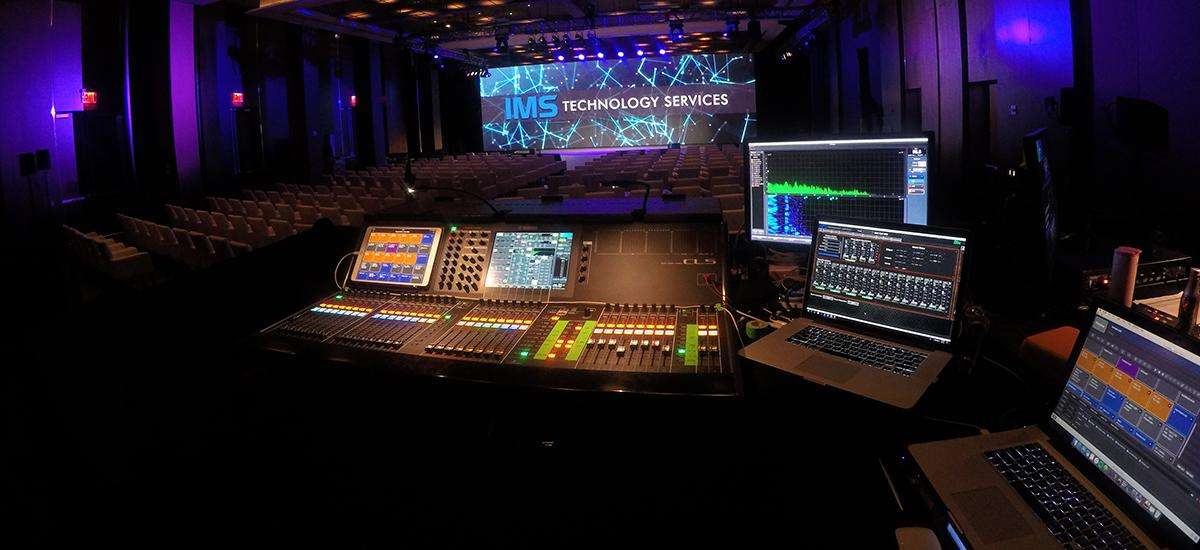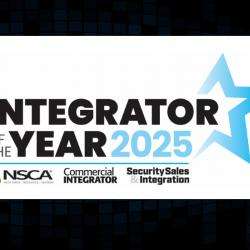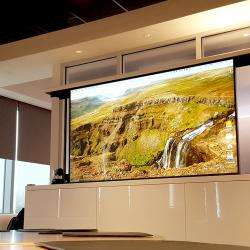The Dreaded AV RFP

- Know what you want
- Separate your quotes
- Be clear about your budget
Are you ready for a cringe-worthy cheerleading chant?
"A-V, R-F-P. You need this stuff, now buy from me."
We can all agree that the thought of our tech team with pom-poms and fist-pumps sounds particularly painful. Unfortunately, that often pales in comparison to the feelings that well-up through the actual process of going out to bid for AV services.
 Have you ever had any of these thoughts?
Have you ever had any of these thoughts?
- Do I actually need all of this stuff?
- Why does every company call the same equipment different things?
- They don’t even give me a complete proposal, so why do I take the time to list everything I need?
- How do I actually compare these proposals when I receive them?
- None of this makes sense, so why even put this out there in the first place?
- Does this really have to be SO complicated?
Sound familiar to you? RFP so often in this context can stand for “Really Frustrating Process.” I can liken it to trusting a mechanic who has recommended thousands of dollars of repairs when you’re not sure you even need those repairs to be done. You know you have to go out to bid at certain points in time, but it will always be a chore… it doesn’t have to be!
Here are a few suggestions about how to remove some of the frustration from your AV RFP:
1. Be clear. Event staging companies (aka AV companies that do more than just AV equipment) can only prepare for the elements you’ve requested. Dates, rooms, times, and breakdowns of individual meetings--including special needs--all need to be disclosed for a complete quote. Do you know when you’d like to be fully set in the plenary for rehearsals? Share that. If you know you’d like to have a décor element for the main stage, include pictures of the last two stage sets you’ve used and maybe another picture of a design element you like. The more accurate and complete you are, the more you can expect the same from an event staging company who wants to earn your business.
2. Ask for optional elements or upgrades in separate proposals. For example, if you’re looking for precision on the General Session and breakout equipment elements but still want a quote for recordings of the breakouts, ask for an addendum quote for the recordings piece. Don’t complicate the larger proposal unnecessarily. Also, by breaking out the ‘extras’ into smaller quotes, you’re giving yourself the ability to pitch potential improvements to company executives. This will make it easy for someone who is not as intimately involved in all of the details to see exactly how a ‘small extra’ translates into dollars, so they can decide if it’s worth the investment.
3. Provide a budget up front. I know, I know, you’re never supposed to tell someone what you can pay before they give you an offer. You remove all of your negotiating power that way, right? Not necessarily. If you have a hard stop at a certain number, your vendor needs to know. There may be no way to get to your number, as maybe union labor in a major market city has doubled the labor cost of the event from last year’s vendor. Regardless, bidding vendor companies need to know what you’re hoping to spend. Just like a Realtor needs to know a price range to understand what houses to show you, event staging vendors need the budget to know where to start when preparing the bid.
4. Ask for a rendering of critical meeting rooms. There is nothing worse than being surprised when you walk into a room that is supposedly set and ready for your meeting. Can I get an amen? In today’s event economy, there is no need to be surprised. AV renderings are as commonplace in the industry as room diagrams are for venues. Any company you want to work with will have the ability to show you what those important meeting rooms will look like.
5. Give event staging companies three-four weeks to prepare the RFP. Does it really take that long? Not necessarily, but it respects current workload and scheduling and provides an opportunity for your suitors to ask additional questions. Plan to spend time in those few weeks to answer questions from the bidding staging companies. Those who want your business will always have more questions. While some questions will arise later in the process, you’ll know which partners have done their homework and put in the time, energy, and effort to earn your business. By allowing ample time to prepare your RFP, you can expect more from the proposals you receive.
6. Once submitted, come back and ask the participating companies whether or not they have included everything from the RFP in their respective quotes. If everything is there, great. If not, ask what is missing from their proposal and what is the expected cost of that portion (so you can compare the quotes accurately). Remember, you will need to account for in-house exclusives in addition to your outside AV quote. A good event staging company wants to do the leg work for you and liaise with the in-house provider to get this information. Why not let them take something off your plate? Best case, ask for this portion to be separate from their quote as well so you can hold in-house accountable for their portion of the overall cost. If you want to handle the in-house portion, that’s certainly up to you. Just make sure in-house exclusives are not a surprise you’re left dealing with in the final hour. They will apply, you just need to know to what extent.
Article written by BJ Strote, IMS National Account Manager, for Midwest Meetings.
Share This Article
Categories
Latest Posts

Technology That Keeps Residents Engaged, Connected, and Safe

IMS Closes Out 2025 with Major Industry Awards, Looks Ahead to 2026

Philadelphia 2026: Is Your Venue Ready for the Spotlight?

Scalable AV Infrastructure for Life Science Enterprises

Extend Your Reach: The Power of Virtual and Hybrid Events
Tags
Contact Us
- Headquarters: 3055 MCCANN FARM DRIVE, GARNET VALLEY, PA 19060
- Event Staging: 2000 COLUMBIA AVENUE, SUITE 300, LINWOOD, PA 19061
- Southeast Office: 404 SUNPORT LANE, SUITE 350, ORLANDO, FL 32809
- Phone: + 610-361-1870
- Contact Us
Services
Recent Posts

Technology That Keeps Residents Engaged, Connected, and Safe


